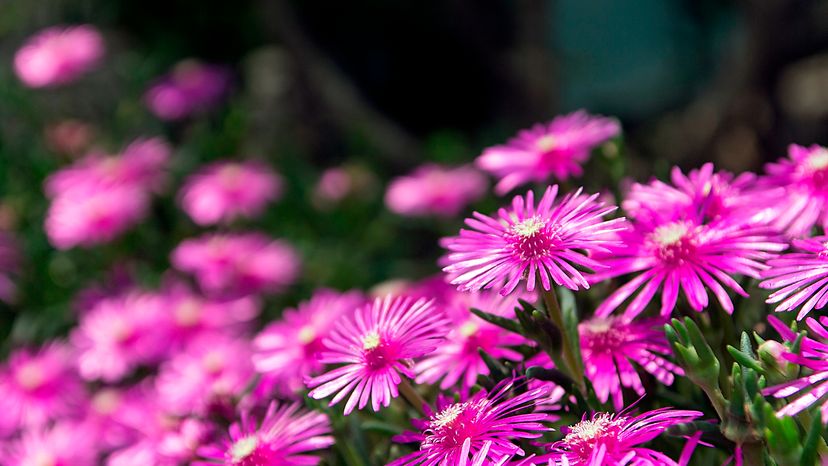
Key Takeaways
- Livingstone daisies are frost-tender succulents that flourish in sunny, dry conditions, offering vibrant blooms in a spectrum of colors with characteristic dark centers during spring and summer.
- These ground-hugging plants prefer sandy, well-drained soil and are resistant to drought and salt spray, making them excellent for seaside planting. However, they are prone to sunburn in hot, humid climates.
- Ideal for mass plantings and rock gardens, Livingstone daisies can be propagated by seed, requiring full sun and spacing of 6 inches (15 cm). They may reseed themselves with varied color outcomes in subsequent years.
Livingstone daisies have traditionally been grouped under the name mesembryanthemum, but are now widely dispersed under other names. Frost-tender succulents, they thrive in sunny, dry conditions and locations. Livingstone daisies bloom for weeks in the spring and summer.
Description of Livingstone daisy: Livingstone daisies have flat, succulent leaves up to 3 inches long, with the plants hugging the ground. Flowers have dark centers and are colored pink, white, purple, lavender, crimson, or orange. Plants grow up to 8 inches high and spread to 12 inches wide. The flowers close at night and on cloudy days.
Advertisement
Growing Livingstone daisy: Livingstone daisies need full sun and sandy, well-drained soil. They tolerate drought and are resistant to salt spray, making them good for seaside plantings. Livingstone daisies tend to sunburn in hot, humid weather. Space plants 6 inches apart for full coverage.
Propagating Livingstone daisy: By seed. Sow seeds indoors 10 weeks prior to last frost date. Seeds germinate in 7 to 14 days at 60 degrees Fahrenheit. In frost-free locations, they can be seeded directly into the garden and thinned to the proper spacing. They will reseed, although the colors will not be the same in following years.
Uses for Livingstone daisy: These are ideal plants for mass plantings. They're wonderful sunny ground covers. Plant them in rock gardens; they are especially beautiful on slopes and hillsides. They're among the best plants for seaside locations.
Livingstone daisy related species: The primary variety of Mesembryanthemum occulatum is Lunette, bearing lemon-yellow flowers with cherry-red centers.
Livingstone daisy related varieties: Magic Carpet Mixed and Tapestry Mixed combine all colors of Livingstone daisies. Livingstone Daisy Mixed is another blend of all colors. Other available mixes may include a variety of Livingstone daisy varieties as well as similar species.
Scientific name for Livingstone daisy: Dorotheanthus bellidiformis (many seed catalogs still list it under Mesembryanthemum criniflorum)
Advertisement